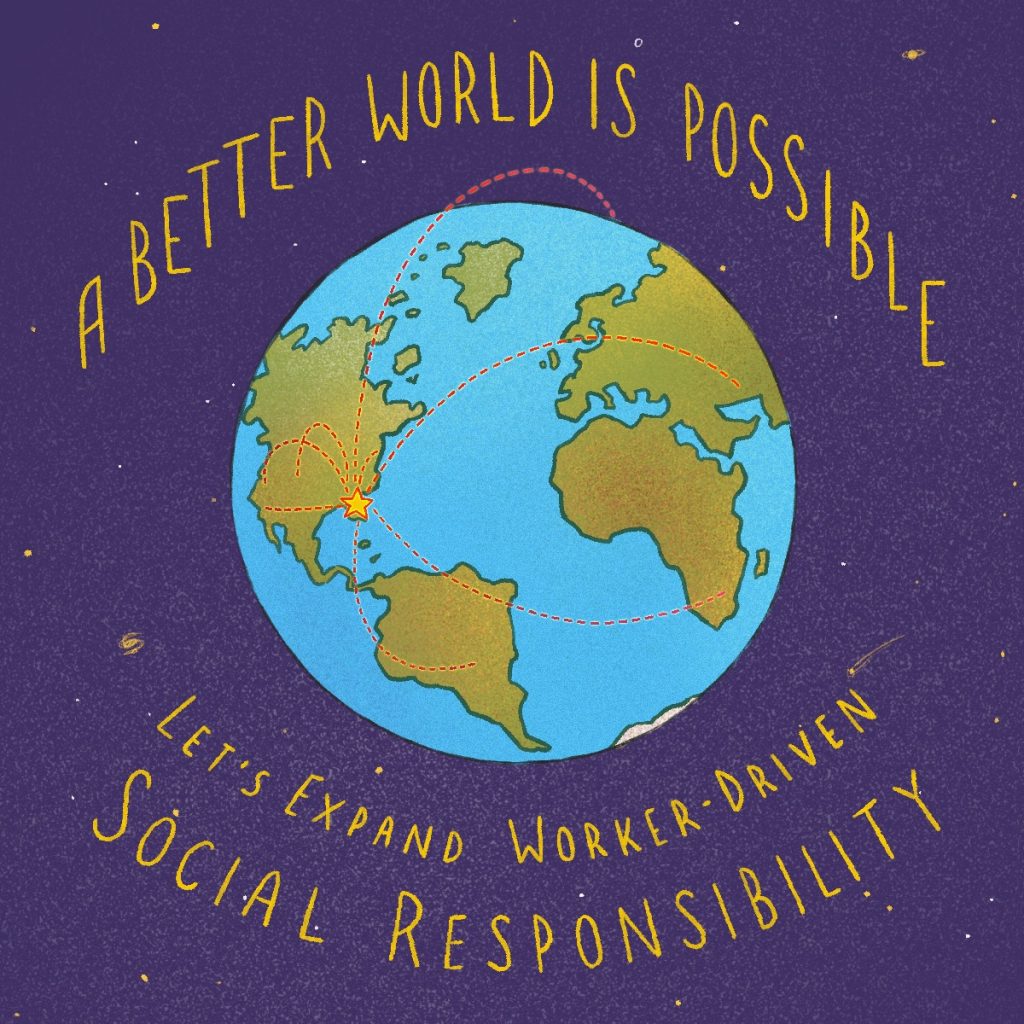Anita Hill, Chair of the Hollywood Commission, on adapting the Fair Food Program to the U.S. entertainment industry: “There are myriad lessons for Hollywood to glean from the approach, execution and success of CIW and the Fair Food Program in eradicating sexual harassment from an industry devoid of accountability and rife with abuse…”
Today is the last day of our 10-day anniversary celebration, marking a decade since the birth of the Fair Food Program, the pioneering inspiration for the Worker-driven Social Responsibility (WSR) model.
From the very beginning, we knew that if farmworkers here in the deep South could harness the purchasing power of the multibillion dollar brands that buy the produce they harvest to end generations of brutal abuse — including forced labor, sexual assault, discrimination, and systemic wage theft — workers virtually anywhere could use the model to dismantle long-entrenched systems of exploitation.
Over the course of the past decade, we’ve proven that WSR can be adapted to fit almost any industry, anywhere around the globe. As long as the essential and interconnected principles of the model– worker-drafted codes of conduct, worker-to-worker education, a 24/7 complaint investigation and resolution mechanism, dedicated monitoring, and real market consequences for violations — are in place, the model gives workers the power they need to uncover abuses and root out bad actors in the workplace. From apparel sweatshops in Bangladesh and Lesotho to dairy farms in Vermont, WSR has proven its unmatched ability to unravel traditional power imbalances that have made workplaces more dangerous, exploitative, and isolating. And as we write today, new WSR initiatives are on the runway ready to take off in still more industries, including construction sites in Minneapolis and film sets in Hollywood!
In Bangladesh, the Accord on Fire and Building Safety has become a critical tool to protect workers in that country’s garment sector. Across continents, women workers in the garment industry of Lesotho traveled to Immokalee to learn first-hand from the strategies and victories of farmworkers in order to launch their own WSR agreement and dismantle gender-based violence in their factories.
Milk with Dignity, led by dairy workers in Vermont, is one of the most notable implementations of the WSR model. Created by Migrant Justice, a worker-based human rights organization, with technical assistance from CIW, FFSC, and members of the Worker-driven Social Responsibility Network (WSRN), Milk With Dignity signed its first legally-binding agreement with Ben & Jerry’s in late 2017.
In the words of Migrant Justice:
“The CIW’s collaboration with Migrant Justice has been essential to securing human rights for hundreds of dairy workers in Vermont and New York. Their visionary leadership and unceasing support played a key role in the launch of Milk with Dignity, a worker-driven social responsibility program that is transforming the dairy industry, just as the Fair Food Program has transformed the tomato industry, to ensure respect and dignity for workers.”
The list goes on: in the Twin Cities, CIW and WSRN are supporting construction workers to eradicate wage theft and other abuses through WSR. In Arkansas, we’ve shared our experience and insight with poultry workers in processing plants. And right now, the Fair Food Program team has deployed (virtually) to Hollywood, where we’ve partnered with the Hollywood Commission, an initiative chaired by Anita Hill that is aiming to eliminate harassment, bullying, and discrimination in the entertainment industry.
The longstanding abuses laid bare by the #MeToo movement have deep structural roots in the film industry: Independent production companies face a number of familiar challenges, including lack of adequate in-house resources and internal expertise to put prevention systems in place, limited victim reporting, and vulnerable workers who face credible fears of retaliation if they come forward to report abuse. But the WSR model provides real hope for change for countless entertainment workers. As FFSC’s Judge Laura Safer Espinoza put it, “Although each sector is unique, sexual harassment and bullying in the workplace are universal problems that share the common denominator of power imbalance…through our work over the past decade, we have proven that an interconnected system of transparency, worker empowerment, and reliable enforcement can bring about true accountability and transform an industry from the ground up.”

